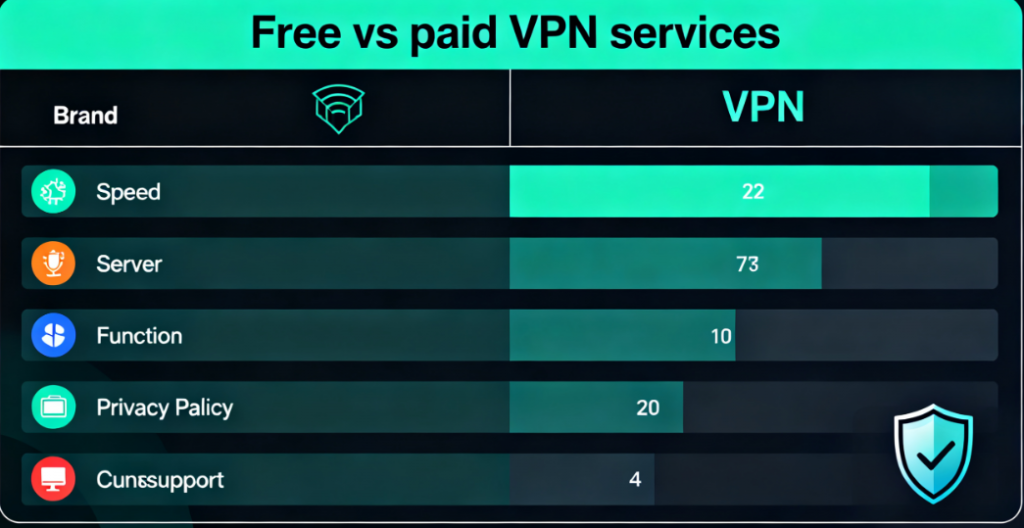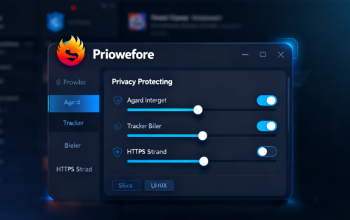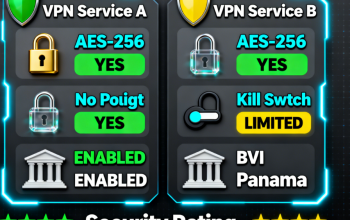In 2025, online privacy isn’t optional—it’s essential. Whether you’re shopping, streaming, or working remotely, using a VPN can protect your personal data, hide your IP, and keep your online activity private. But with so many options, the key question is: free vs paid VPN services—which should you choose? This guide helps you compare, review, and pick the right VPN for your needs.
Free VPN Services: Cheap Options with Limitations
Free VPNs are tempting because they don’t cost a dime. For casual browsing or occasional access to geo-restricted content, they can work fine.
Pros of Free VPNs:
- Cost: Free to download and use.
- Easy to use: Simple setup for beginners.
- Basic privacy: Offers encryption and IP masking.
Cons of Free VPNs:
- Limited speed and bandwidth: Data caps and throttling make streaming or downloads frustrating.
- Fewer server locations: Limited options for switching countries.
- Privacy trade-offs: Some free VPNs track and sell user data.
- Fewer features: Advanced tools like kill switches or split tunneling are often missing.
Free VPNs are best for users who occasionally need privacy without paying, but don’t rely on them for heavy streaming, sensitive data, or work-related use.

Paid VPN Services: Reliable, Secure, and Worth the Cost
Paid VPNs require a subscription, but they deliver speed, security, and extra features that free VPNs can’t match. For frequent users, remote workers, or anyone serious about privacy, paid options are usually the smarter choice.
Pros of Paid VPNs:
- High speed & unlimited bandwidth: Ideal for streaming, gaming, and large downloads.
- More server locations: Hundreds of servers worldwide for flexible geo-spoofing.
- Enhanced security: Strong encryption, no-logs policies, and extra features like malware protection.
- Customer support: 24/7 help ensures you’re never left troubleshooting.
Cons of Paid VPNs:
- Cost: Subscriptions range from $3–$15 per month depending on features.
- Learning curve: Some advanced tools may take time to master.
Paid VPNs are perfect for anyone who needs reliable privacy, fast connections, and full-featured service.

How to Decide: Free vs Paid VPN Services
Choosing between free vs paid VPN services depends on your priorities. Ask yourself:
- Usage frequency: Occasional users may be fine with free VPNs; daily users benefit from paid options.
- Purpose: Streaming, remote work, and sensitive browsing usually require a paid VPN.
- Privacy importance: Free VPNs may not offer adequate protection.
- Speed and reliability: Paid VPNs consistently outperform free ones.
Practical Tips for Choosing a VPN
- Check reviews: Sites like TechRadar and CNET regularly rank free and paid VPNs.
- Try before you buy: Many paid VPNs offer 7–30 day money-back guarantees.
- Read privacy policies: Make sure the VPN doesn’t log or sell your data.
- Check device compatibility: Ensure it works across PC, Mac, iOS, and Android.
Conclusion
When comparing free vs paid VPN services, it all comes down to your needs, budget, and commitment to privacy. Free VPNs are fine for casual users, but paid VPNs offer speed, reliability, and features that make your online life safer and smoother.
By learning how to evaluate VPNs, you’re not just picking a service—you’re mastering a key digital skill: protecting your online privacy. With the right VPN, you can browse safely, stream content without limits, and safeguard your personal data in 2025 and beyond.


